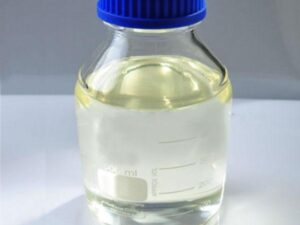Description
Polysorbate 20: The Unsung Hero of Your Everyday Products
Polysorbate 20 is a name you might not recognize, but it’s highly likely you encounter it daily. This versatile ingredient, also known as Tween 20, is a nonionic surfactant used in a wide range of products, from cosmetics and personal care items to pharmaceuticals and even food. But what exactly is polysorbate 20 and why is it so prevalent?
What is Polysorbate 20?
Polysorbate 20 is a yellowish, water-soluble liquid derived from sorbitan, a sugar alcohol, which is then ethoxylated and esterified with lauric acid (a fatty acid). This process results in a molecule with both hydrophilic (water-loving) and lipophilic (oil-loving) properties. This dual nature is what makes it such an effective surfactant.
The Power of a Surfactant
A surfactant’s main function is to reduce the surface tension between two liquids, a liquid and a solid, or a liquid and a gas. In simpler terms, it helps different substances mix together that wouldn’t normally do so. Think of oil and water – they naturally separate. Polysorbate 20 acts as an emulsifier, allowing these two substances to blend and remain stable in a solution.
Uses and Benefits of Polysorbate 20:
Its versatility stems from its ability to perform a variety of functions:
- Emulsifier: As mentioned, it helps to blend oil and water-based ingredients, creating stable and homogenous emulsions. This is crucial in creams, lotions, and other cosmetic products.
- Solubilizer: Polysorbate 20 can help dissolve oil-soluble ingredients in water-based solutions. This is important for incorporating fragrances and essential oils in water-based formulations.
- Stabilizer: It helps to prevent ingredients from separating or clumping together, ensuring product stability and a consistent texture.
- Foaming Agent: While not a primary foaming agent, it can contribute to foam formation and stability in products like shampoos and body washes.
- Wetting Agent: It can help to wet surfaces more effectively, allowing products to spread more evenly. This is beneficial in hair conditioners, for example, ensuring even distribution throughout the hair.
Where Can You Find Polysorbate 20?
Given its diverse functionalities, polysorbate 20 is found in a vast array of products, including:
- Cosmetics: Lotions, creams, makeup removers, cleansers, sunscreens.
- Personal Care Products: Shampoos, conditioners, body washes, soaps.
- Pharmaceuticals: Some oral and topical medications utilize polysorbate 20 for solubilization and stabilization.
- Food Products: Sometimes used as an emulsifier in ice cream, pickles and other processed foods. It can also be found in some processed foods to help distribute ingredients evenly.
- Household Cleaners: It can be found in certain cleaning products to aid in the removal of grease and dirt.
Is Polysorbate 20 Safe?
Polysorbate 20 is generally considered safe for use in cosmetics and other products when used in appropriate concentrations. Regulatory bodies like the FDA and the European Commission have approved its use in various applications. However, as with any ingredient, some individuals may experience allergic reactions or sensitivity.
Possible Concerns:
- Ethoxylation: Polysorbate 20 is produced through ethoxylation, a process that may result in trace amounts of ethylene oxide (a known carcinogen) and 1,4-dioxane (a possible carcinogen) as byproducts. However, manufacturers typically employ purification processes to minimize the levels of these contaminants.
- Irritation: While rare, some individuals may experience skin irritation or allergic reactions to polysorbate 20. It’s always a good idea to perform a patch test before using a product containing polysorbate 20 if you have sensitive skin.
The Bottom Line:
Polysorbate 20 is a valuable and commonly used ingredient that plays a crucial role in the formulation of many everyday products. Its ability to emulsify, solubilize, and stabilize ingredients makes it an indispensable component in cosmetics, personal care items, and various other applications. While potential concerns about ethoxylation exist, manufacturers generally take measures to minimize contaminants. Overall, polysorbate 20 is considered safe for use in appropriate concentrations, making it the unsung hero of many products we rely on daily.












Reviews
There are no reviews yet.